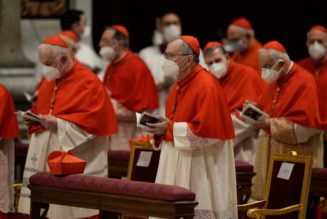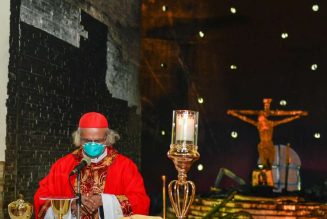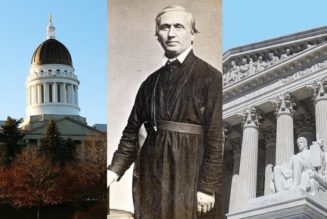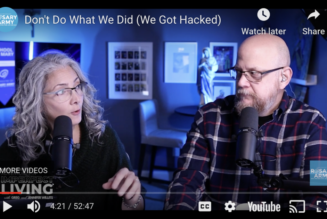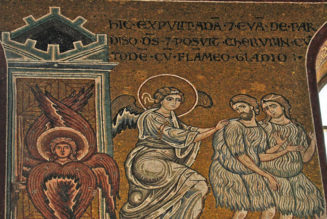25th Sunday in Ordinary Time
Fr. Victor Feltes

In today’s strange parable, Jesus presents the scheming of a thief and a liar as an example we can learn from. We are not to imitate this dishonest steward’s treachery, but rather his proactive shrewdness, “for the children of this world are more prudent in dealing with their own generation than are the children of light.”
How shrewdly proactive are we in doing good? We hunt for bargains at the store or online. But do we pursue opportunities to be generous? You have wealth and skills – so share them creatively. We invest and save for retirement. But do we intentionally store up treasure in heaven like Jesus tells us to? You can take nothing with you when you die; but you can increase what wealth awaits you by sending it ahead of you beforehand through generous deeds done now on earth. Jesus tells us to be “as shrewd as serpents and as innocent as doves.” He wants us, in cooperation with his grace, to show initiative in strategically and sinlessly serving his Kingdom for God’s glory, for our good, and for the good of all. That’s a worthwhile takeaway, but let’s look a little deeper. Like many of Jesus’ stories, today’s parable contains weird details which goad us to grapple with it further. What do we discover when we imagine ourselves in the shoes of the dishonest steward?
In this story, a rich man had a steward who was reported to him for squandering his property. (A steward is someone entrusted to manage another’s property, finances, or affairs.) The master summoned his servant and said, “What is this I hear about you? Prepare a full account of your stewardship, because you can no longer be my steward.” If you and I are this steward, then who is our rich master? Our Lord is God. We are his servants, and who could be richer than the one from whom all good things come?
What has God entrusted to us? St. Paul replies, “What do you have that you did not receive? … For we brought nothing into the world.” Even the hardest-working farmer relies upon God’s soil, sun, air, and water to transform the seeds into his harvest. Even our own efforts in doing good come from God, “for God is the one who, for his good purpose, works in you both to desire and to work,” as St. Paul tells the Philippians. Every good thing we have is his.
Have we squandered what God entrusted to us as stewards? Every sin is a misuse of what we’ve been given, and who of us has used what we were given to its full potential? Our Lord has put us on notice that a day is coming when our present stewardship will end with a full accounting of our stewardship, “for we must all appear before the judgment seat of Christ,” St. Paul writes, “then each of us shall give an account of himself to God.”
The steward in the parable said to himself, “What shall I do, now that my master is taking the position of steward away from me? I am not strong enough to dig and I am ashamed to beg.” He recognizes he is too weak and too proud. Similarly, who of us is strong enough to overcome death, to dig ourselves out of the grave? And if you or I were perfectly humble instead of proud, we would always live in the truth (about who God is and who we are) and we would never sin—and yet we do sin.
The steward said to himself, “I know what I shall do so that when I am removed from the stewardship they may welcome me into their homes.” He called in his master’s debtors one by one, asking them, “How much do you owe my master?” He then forgave portions of their debts – sometimes a fifth or a half of what they owed. And in the end, amazingly, when what this dishonest steward has done is revealed, even his betrayed master commends him for acting prudently and this steward is welcomed into many mansions.
The Our Father prayer as it appears in St. Matthew’s Gospel says, “forgive us our debts, as we forgive our debtors.” Whenever someone sins against you they sin against God too, creating a kind of debt, but you yourself can forgive a portion of that debt. When our Lord sees this, he commends you for it. “Blessed are the merciful, for they will be shown mercy.” And when you are more mercifully generous than what is deserved, you gain blessings. “For the measure with which you measure will be measured out to you.” So learn from the dishonest steward. Forgive the sin-debts of others, be creative and proactive in your generosity on earth, and one day “you will be welcomed into eternal dwellings.”
Join Our Telegram Group : Salvation & Prosperity

